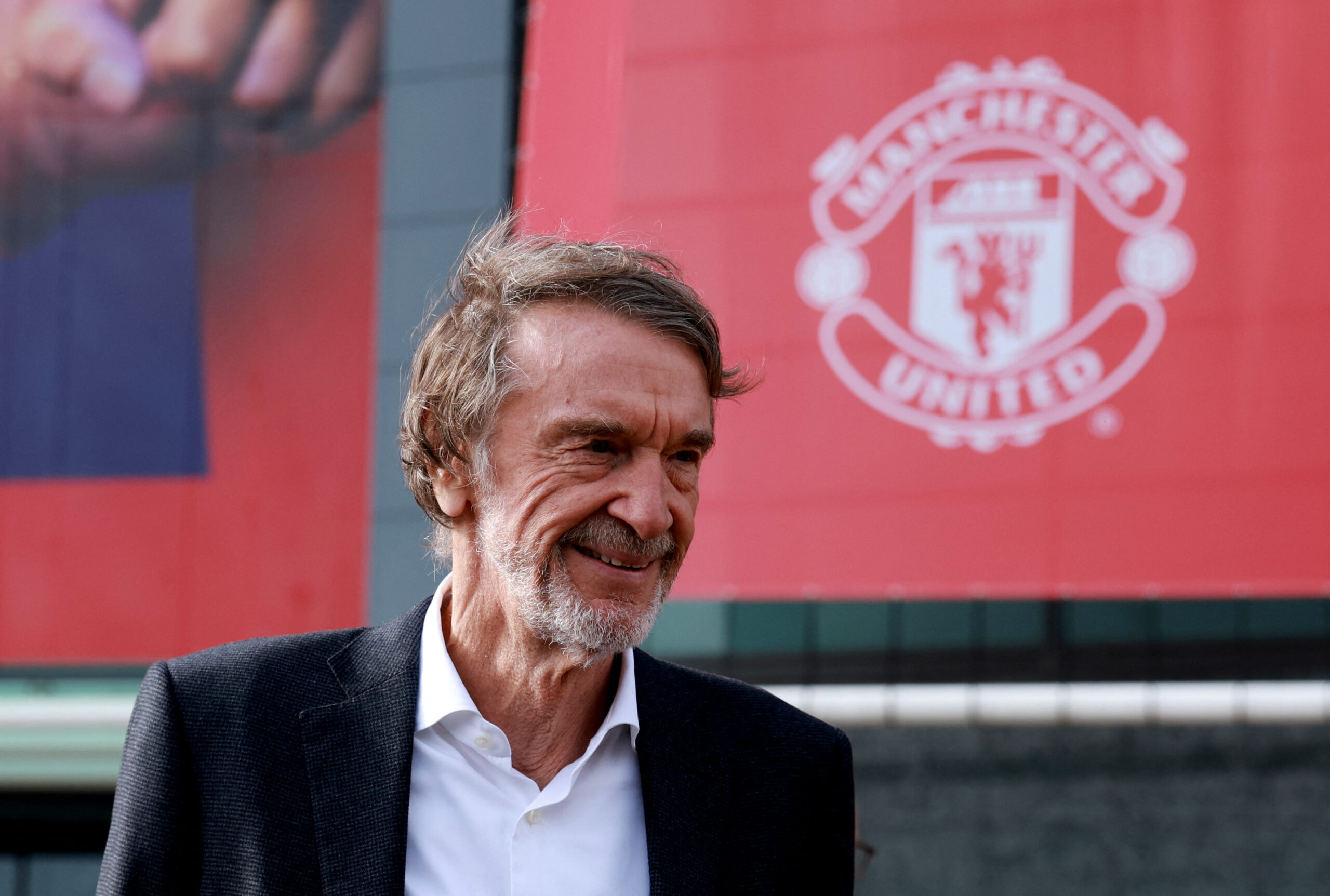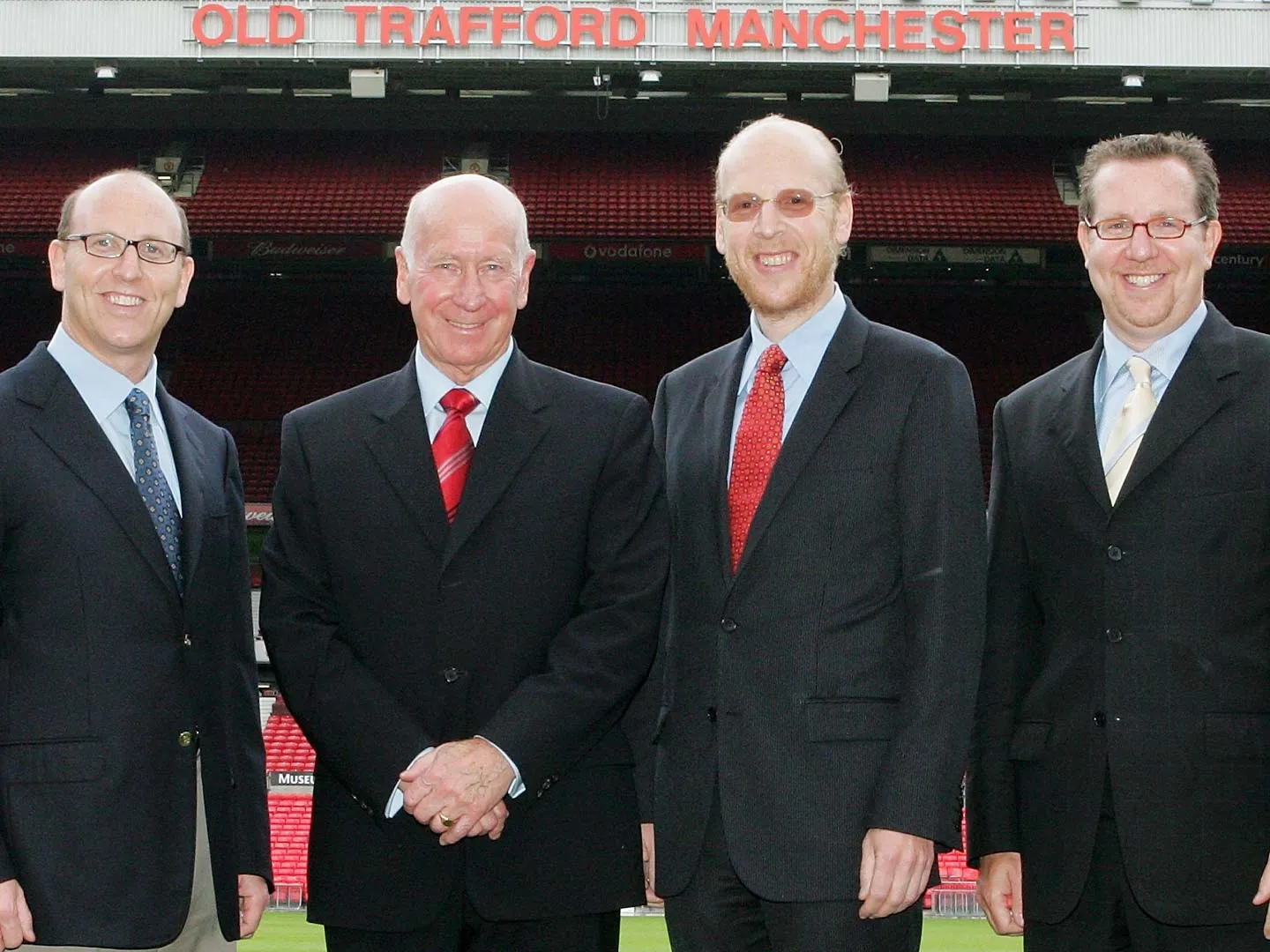With Jim Ratcliffe joining the Manchester United ownership, we examine some questions many have around how the new structure will work.
Typically, when a minority share of a football club is sold, little fuss is made. Clubs are consistently raising funds and changing ownership structures; that is just the way of the modern football world.
Yet, with the impending news of Sir Jim Ratcliffe purchasing a 25% stake in Manchester United, the sports business world is reaching a fever pitch, as this seems to be the start of a new era where a football club’s specific functions, rather than just blind chunks, are being bought and sold. Allegedly, the 25% stake that Ratcliffe is purchasing is the footballing side of Manchester United, with the Glazers retaining control of the commercial aspects of the club.
While a “Chop Shop” typically refers to a place that breaks down stolen cars and sells off the parts on the black market, the analogy can be used for what is happening at Manchester United right now. The Glazers have decided that they no longer need or want to run the engine of the club (aka the on-pitch operations), so they have decided to disassemble it, chopping it into little pieces and keeping the parts they deem “valuable” while someone takes over to patch together a working vehicle of mismatched parts — in this case, Ratcliffe, a billionaire chemical engineer and CEO of INEOS Petrochemicals.

This acquisition is groundbreaking. While not the most successful team on the pitch in the last decade, Manchester United is arguably the world’s largest commercial sporting enterprise in the world. With this financial move, they are entering uncharted territory, and in the world of business, let alone sports, decisions with such uncertainty rarely happen on this large of a scale. Understandably, there are a lot of questions about how this will all work, how it will impact the commercial footballing landscape, and ultimately, if it will change the course of Manchester United and help them return to the on-field dominance that built them into such an impressive commercial operation.
On-Field Performance Questions
The first question Manchester United fans will have is how Ratcliffe intends to turn the team around. There are many different types of owners in this regard. Will he be like Todd Boehly, who went scorched earth and bought every player who was mentioned to him, or will Ratcliffe follow the Manchester City blueprint, which involves an incredibly clear leadership structure that allows each person to have a singular focus instead of juggling multiple roles and responsibilities?
From a long-term perspective, as much as United fans may hate to admit it, they would want something that resembles the efficiency, intelligence, and vision that the blue half of Manchester has achieved.
If we start with the top and work our way down, there have been calls for Manchester United to appoint a sporting director for years. It has become a necessity for modern clubs, yet Manchester United have somehow evaded this and continued to operate with a seemingly convoluted structure. How many world-class companies have two CEOs? Or two head coaches calling the plays and making decisions on their starting lineups?
The consensus opinion is that Ratcliffe will appoint a sporting director and evaluate from there. Whether that will be a future with manager Erik ten Hag becomes the next question, as sporting directors typically appoint managers who play a style that matches their own instead of compromising and building a team around the incumbent manager.
Currently, the squad is in disarray, with star players facing off-field issues, dips in form, and a slew of injuries. Even when fully healthy, the squad is a rag-tag bunch, with players acquired through multiple coaches who played severely contrasting styles. Overhauling an entire squad to make it congruent takes years of consistent, focused recruiting, which has been the complete opposite of Manchester United’s strategy since Sir Alex Ferguson left the club. Ratcliffe will want to bring calm, long-term thinking back to an organization that has acted so shortsightedly in the past decade.
Off-Field Questions
From the information that much of the press is sharing, Ratcliffe will purchase all of the “performance” aspects of Manchester United while the Glazers retain the commercial aspects of the club.
From an outside perspective, the ownership of the club breaks down into three pieces. The Glazers have majority control, owning about 52%. Ratcliffe is purchasing 25% from the Glazers, and independent shareholders own the remaining 23 or so percent through the New York Stock Exchange.
While I am not going to try and offer any clarity as to how that ownership mix will work, I do have questions about responsibility because, as I mentioned above, it is very rare, if not unheard of, to have more than one true “leader” for an organization of this size.
The first is who, as an owner, becomes responsible for the necessary infrastructure upgrades to the stadium and training facilities. Old Trafford and Carrington used to be shining examples of football club infrastructure. Still, they were both eventually surpassed by clubs around Europe who have invested heavily into creating the best facilities in the world. Now, they require a much larger upgrade than if they had been adequately maintained and received minor periodic upgrades like most of these clubs have chosen to do.
What portion of these facilities falls under commercial versus performance? Are the Glazers in charge of the seats, while Ratcliffe needs to pay for the pitch and the dressing rooms? You can see how these seemingly silly delineations can become a complex issue, especially when it outwardly seems like one ownership group is more willing to invest than the other. After all, the Glazers let the infrastructure get to such a disappointing state.
My next question is: how will revenue be shared and distributed? In theory, all revenue that is generated outside of performance prize money will be generated through commercial operations. So does that mean that if Ratcliffe wants to purchase a player, he will need to do it through performance winnings (for example, prize money for certain tournaments and competitions), or will the percentage of ownership split revenue? If Manchester United wants to regain its place at the top of world football, it will need to invest more than 25% of its yearly revenue into the squad and all that accompanies the performance side.

My final question is how did the Glazers pull this off? They somehow emerged with an intensely valuable asset while selling off the expensive side of their cash-generation system. The value of the on-field product drives all of the commercial operations, but now they don’t have to inject capital into it and can purely cash the checks that will come if Ratcliffe is able to perform a miracle on the pitch. They basically became a marketing agency that solely supports Manchester United, except they keep the majority of the money that is brought in by the deals. Say what you will about the Glazers, but they have pulled off a lot of incredible business deals.
Is this the first step to fixing Manchester United? Or will this deal complicate the long road back to footballing glory?








